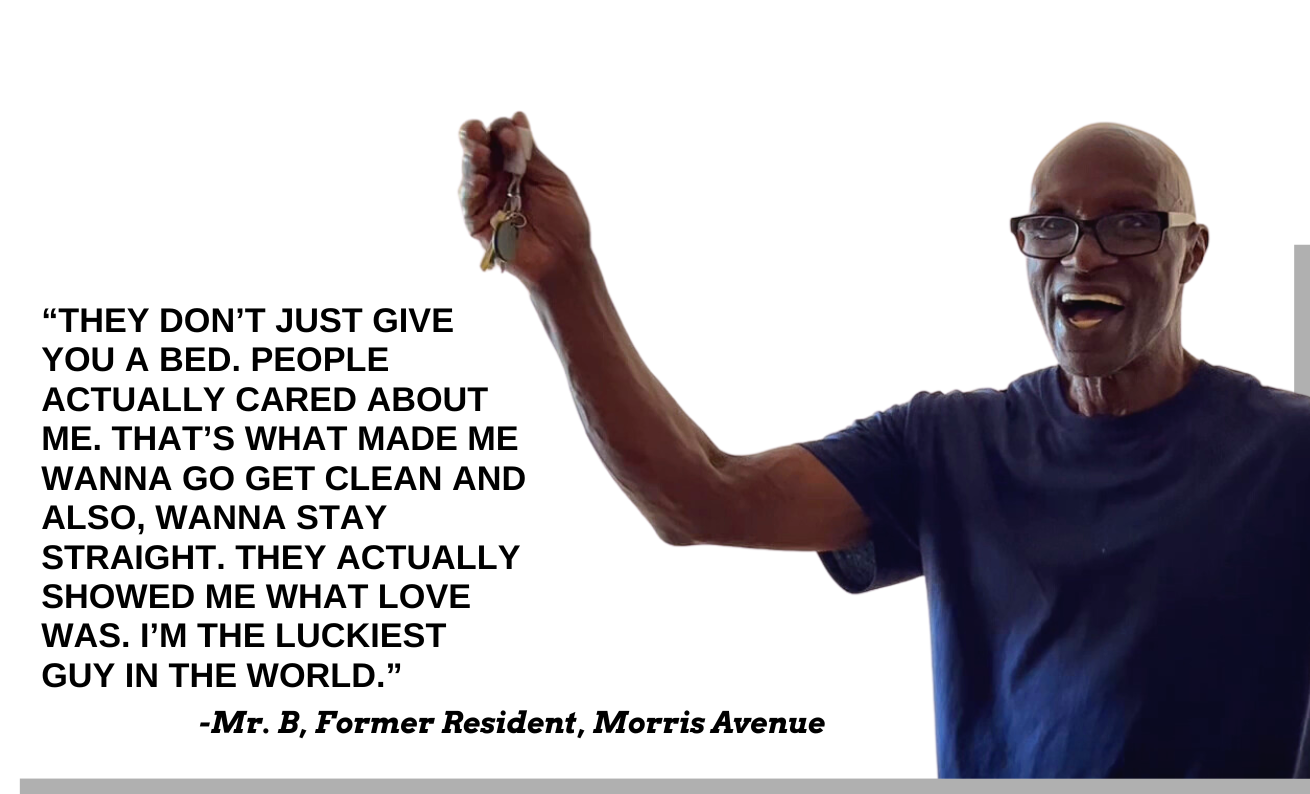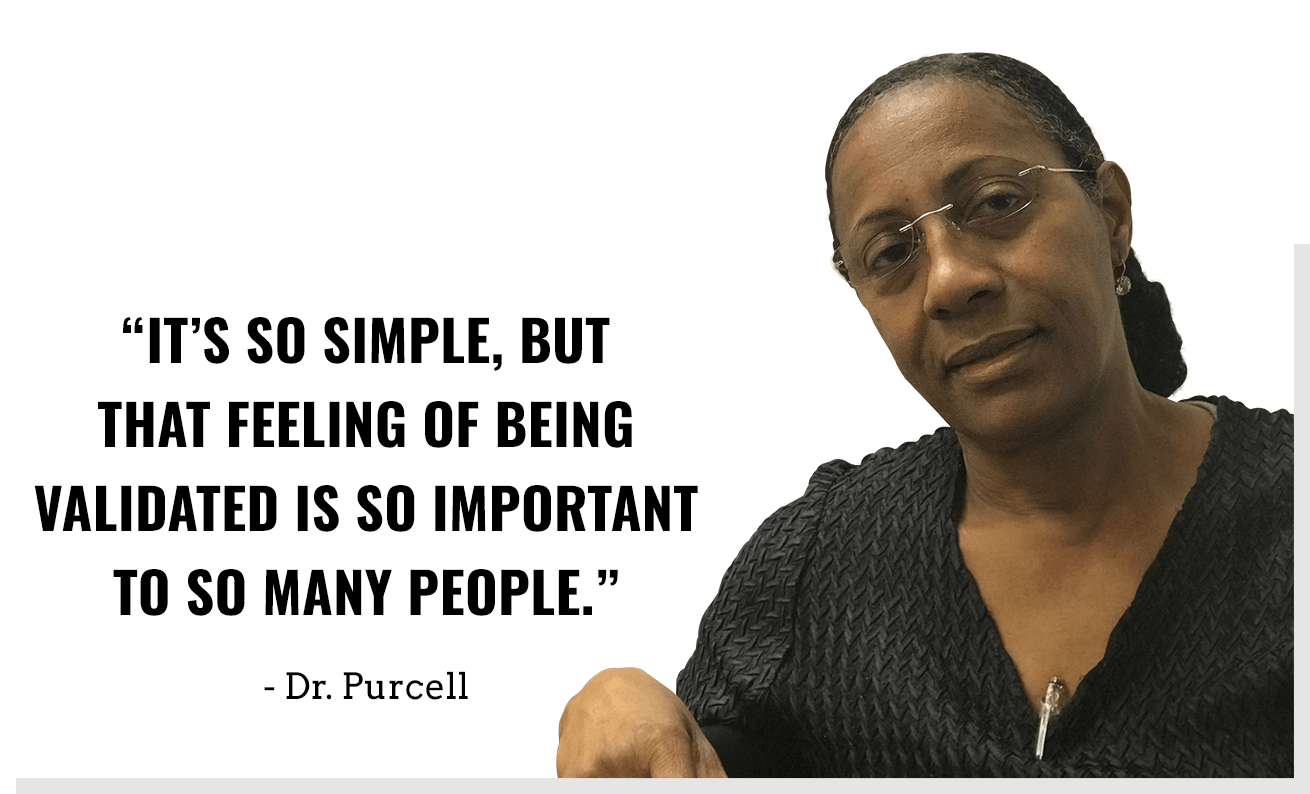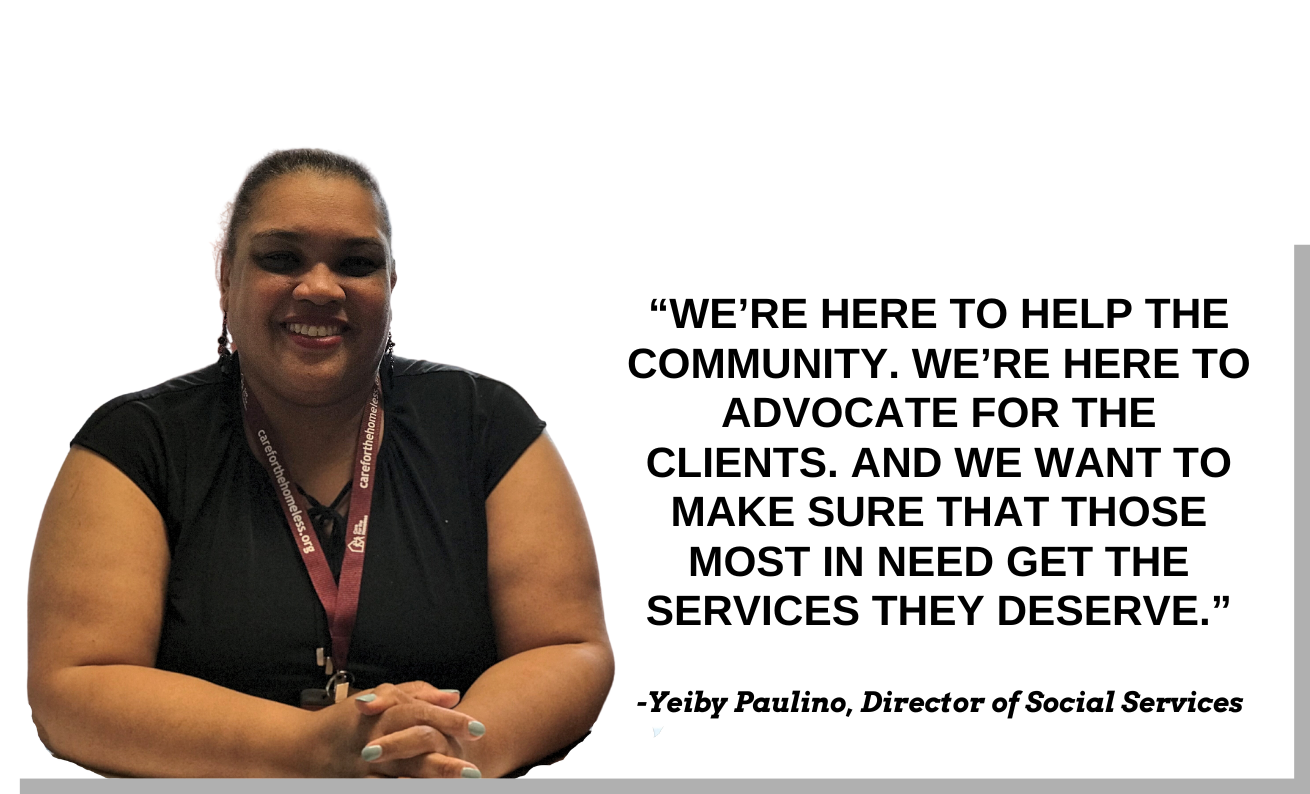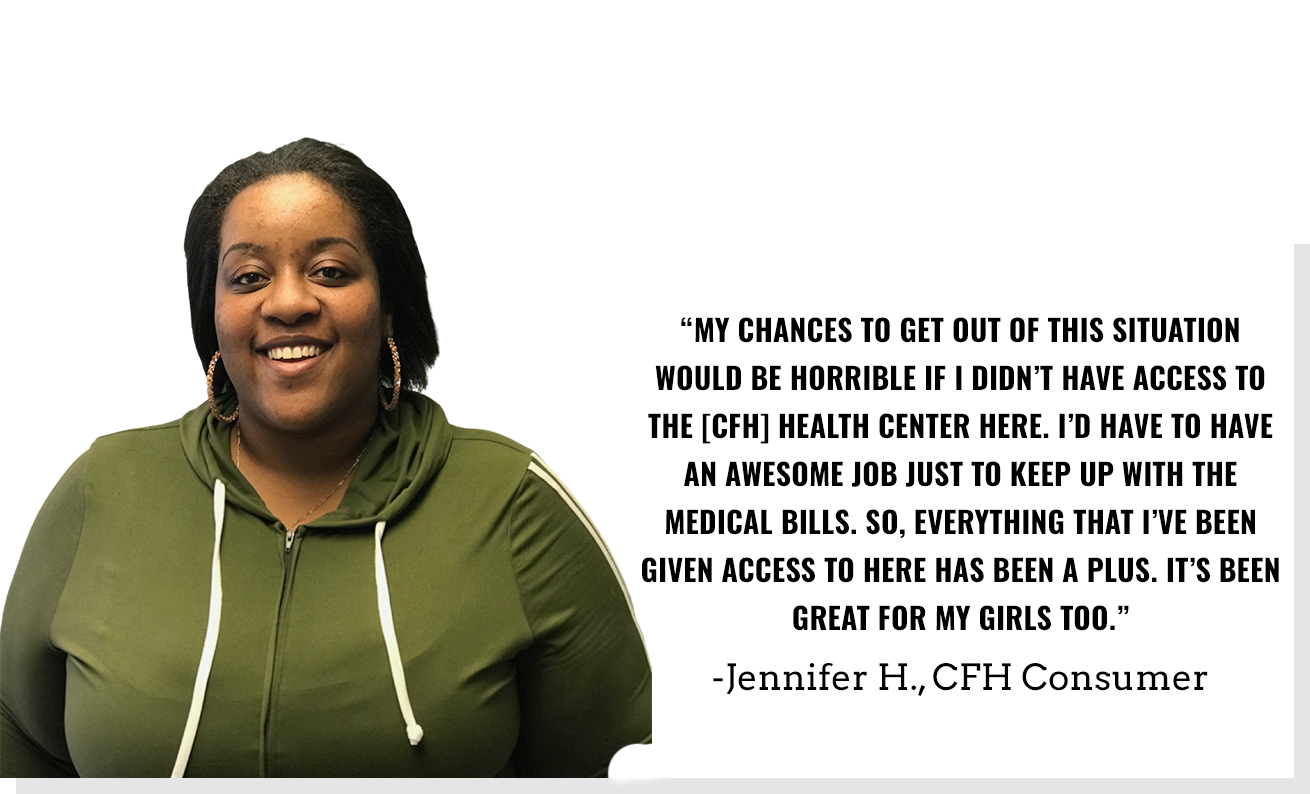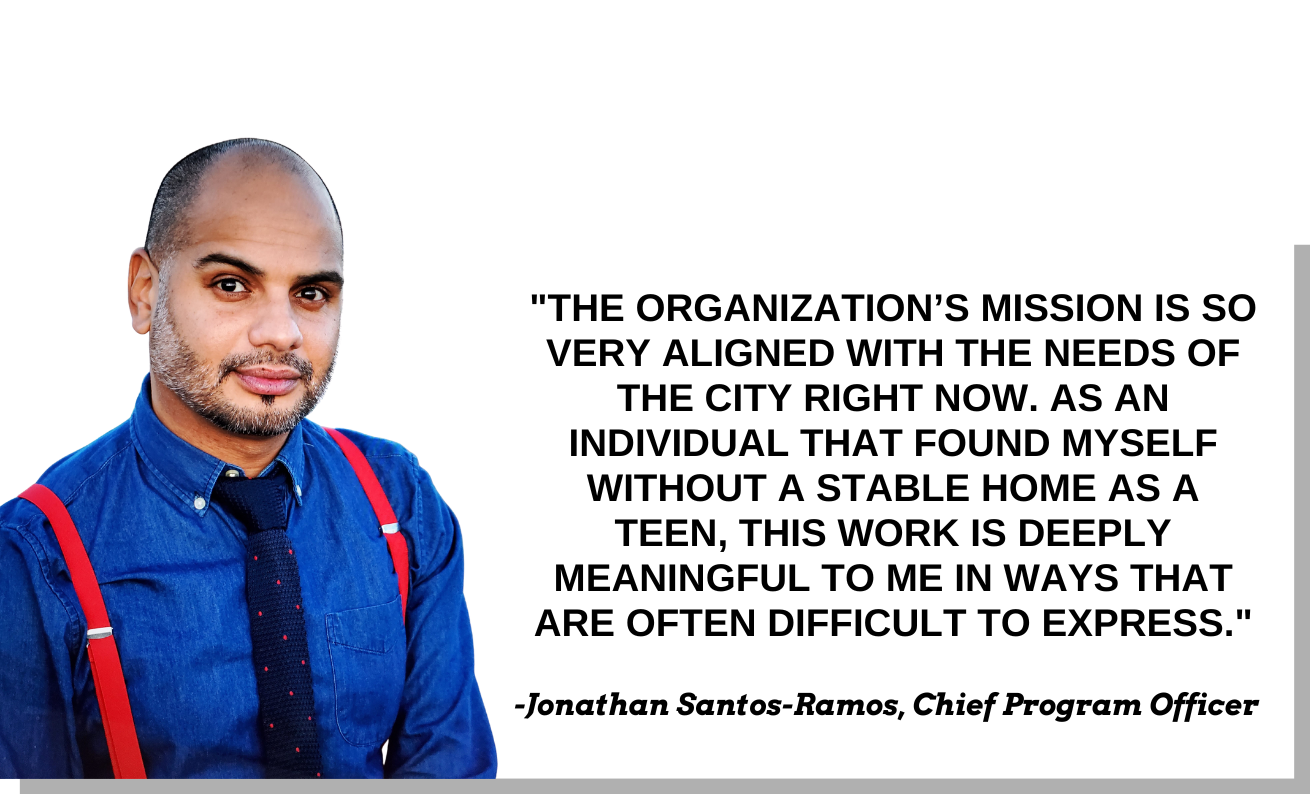Team Spotlight: Luis Fernandez
Do you know Luis? Learn more about his role as an Opioid & Substance Use Coordinator, providing counseling and care for those struggling with addiction. (This interview has been edited for length and clarity.)
What did you do before CFH?
I was addicted to drugs for a very long time, for 20, 25 years almost. I call 2003 my “epic year,” because I completed 18 months of a program that I was in, graduated from the program, and got a job the same year as a first-time counselor with no experience, nothing.
I didn’t have anything to put in my resume because I didn’t have experience doing that kind of work, and the experience that I did have was very minimal because I was addicted most of my life. But someone gave me an opportunity; his name is John, and he was the director at an outpatient program called 820 River Street in South Jamaica, Queens. I was there for three years.
After that, I got an opportunity to come and work in Harlem, which was beautiful because it was very close to my home. And there, it was dealing with homeless individuals that were HIV-positive. We would go to their apartments and make sure that everything was okay. If there was any drug use, then I would get involved and talk to them and see what I could do, option-wise. And that went on for about six years. And then I took a little break, and I started back again in 2014.
Why did you decide to work at CFH?
2014 was a real funny year for me, because in April, I got job offers from three different places all at once. But before that, I had an interview with someone for Care For the Homeless, but not for counseling work. When I went over there, they told me, “No, we made a mistake. This is not the interview you were supposed to come for.” But I met the people that were in charge at that time, and for some reason they were very impressed with me.
When I was really looking for work and doing a couple of things, working at the Fortune Society and fee-for-service work, Care For the Homeless called me back. But this time it was to do the job that I do right now, counseling. They kept my number and someone thought about me when they needed a counselor. I went in and met with the supervisors and director, and now it’s history. That’s how it started—it started on September 8th, 2014.
What do you do at CFH and how long have you been there?
Everything that has to do with substance use. I started here in 2014 doing individual counseling, referrals, assessments, and group therapy. As you know, we work in the five boroughs, and at that time, it was literally the five boroughs, because I had to go to different places to do the kind of work that I do. And that went on for three years until we got a contract, a pilot program from the Substance Abuse and Mental Health Services Administration (SAMSHA).
They gave us some money to start this Medication-Assisted Treatment (MAT) program to prescribe Suboxone [to treat opiate addiction]. At that time I said, “Yeah, okay, but I don’t know what Suboxone is. I gotta look into it. This is not my type of work.” But because I was the only one that had the experience to do the kind of work that they needed to do, especially with opiate users, it fell on me. We started very small over here at the Living Room [Health Center in the Bronx].
What does your current role entail? Just so our readers have a better understanding.
Right now, I provide counseling for anyone that needs it at Care For the Homeless. I cover every facility that needs to be covered as far as Credentialed Alcoholism and Substance Abuse Counselor (CASAC) service is concerned. So I could get a call from Junius, I could get a call from Bellevue, I could get a call from Franklin, etc. I’ve had calls from all these sites, and thank God that we do have remote, because I don’t know what else I would have done. I can’t be in every place every time. We tried to get some counseling to help me, but that hasn’t materialized.
When I come in here at the Living Room, my job consists of me coming in, making sure that we have transportation, making sure that we have snacks and food and clothing that we take with us, since we have a van. We do this in an hour, put all this together, because the doctor and I go out at 1pm and come back at 3pm. I also have to figure out where we’re going to go, where the need is out there in the streets so the doctors will be able to do their job. I usually try to go out on days that the doctors are not here to scout the areas. I need to make sure that they have something to do when they get there.
A lot of it is wound care. Our Hepatitis C treatment has increased. Everything centers on first their homelessness, their addiction, and then the medical services. So when we meet somebody, the first thing that they want, they don’t want food or anything. What they really want is, “Can you provide me a room?”
We’re able to do that to a certain extent because we have an association with BronxWorks. They’re one of the pieces of our outreach program that we have that they’re very involved with. They’re the ones that provide the vehicles for us—the medical van, we just got a brand-new one—and the outreach workers who drive. They’re also the ones that, if I need a room and I call the supervisor and the supervisor has some vacancies, I could take that person with me and bring them into a room. And that starts the whole process for that person. Now they’re opening their interest in their medical situation.
We also follow them after their time in the shelter system. So people that live in the Bronx have gotten housing in the Bronx. We are able to go and visit them on a monthly basis and keep on checking with them. And with the medical services, that never stops. So if the doctors here have been treating a client for months, that doesn’t stop because they move. We go where they are.
Why do you think CFH’s work is important?
When I got here, CFH was a totally different organization from what they are now. Now they got into the shelter business, with the Safe Havens that they’ve been able to open and everything. I think it’s a great idea and hopefully they keep doing it. The only way that a lot of people would know what we do is if they start asking questions or coming to one of our clinics and see what we do, but it’s basically to give medical services to the homeless. That’s what CFH is good about.
And it doesn’t matter if you have insurance or not, which is really, really key. To me, it’s huge, because other programs cannot provide services without that person having insurance. We, on the other hand, we can do that. We are an organization that if somebody walks through the door, we say “Welcome! What do you need for us to do for you?” And whatever that person needs—I’m not going to say 100%, but at least 80% of what they need—we are able to provide on the first day.
Anything else you want to add?
I hope you guys will come down here and really get a sense of what we do. It’s always helpful for other people to know what we do so they can put it out there. Anyone is welcome when they’re interested in what we do.

